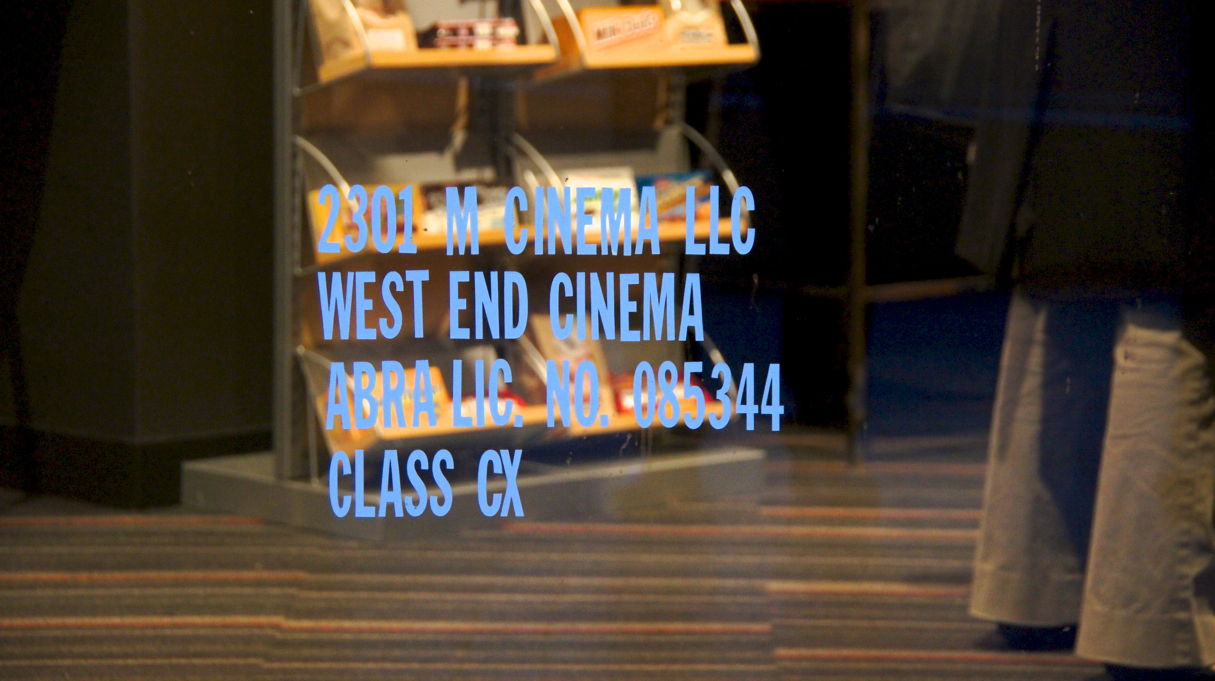When Josh Levin, who operated the West End Cinema at M and 23rd streets, Northwest, read Landmark Theatres’ lawsuit this week against Regal Entertainment claiming the Gallery Place movie theater is keeping big-ticket films out of Landmark’s new theater in Shaw, he says it felt like a bad remake of a movie he’d seen before.
“It was like reading the story of my life with the names changed,” says Levin, who ran West End Cinema from 2010 to 2015 before it went out of business. “That behavior [Landmark is] claiming with Regal they were the perpetrators of with West End and other independent theaters.”
In its suit, filed Tuesday in DC’s federal district court, Landmark claims Regal is abusing its “clearance” pacts with studios to only distribute major releases like Star Wars: The Force Awakens, Spectre, and The Hunger Games: Mockingjay Part 2 at its 14-screen Gallery Place venue, while Landmark’s six-screen cinema at the Atlantic Plumbing development gets left with the dregs, like the little-seen, poorly reviewed holiday film Love the Coopers. Regal can do this, Landmark argues, because it owns 91 percent of movie-theater seats in what the lawsuit defines as the “District Core” (Northwest DC as far north as Adams Morgan and as far west as Rock Creek Park).
While any movie theater would have little trouble selling out Star Wars, Landmark’s claims of being pushed around by a bigger chain sound a little rich to its often-vanquished competition. The company’s 56 locations across the United States specialize in showing foreign, independent, and prestige studio films instead of effects-driven blockbusters. But that doesn’t mean the company isn’t capable of its own tactics to muscle out competitors, Levin recalls.
“Every single film that Landmark showed at E Street during the five years we were open we were denied,” he says. “It left us without access to the indie and prestige films that had the most commercial viability. We were then picking from the films with the least marketing and advertising support that drew the least amount of awareness and attention. It doesn’t mean they were lesser pieces of art, it meant they were less commercially viable.”
Obtaining “clearances” is one of the oldest practices in the movie-exhibition business: A cinema asks studios to “clear” a market, meaning other theaters within a specified radius can’t show the same titles when they open, or “day and date,” in industry parlance. In a place like New York City, which has a high density of movie theaters, the radiuses might be measured in blocks; a market like Washington will likely have its clearances measured in miles.
Levin says there were “hundreds of films” he wanted at West End while he ran it but Landmark reserved for its E Street Cinema about two miles away, or even its Bethesda Row location nearly ten miles away. “If there was a Weinstein [Company] movie I wanted and it was playing in Bethesda, it would never play in DC,” Levin says.
One film that fell into this situation was The King’s Speech, the Weinstein Company’s Best Picture-winning 2010 drama about King George VI and his dialect coach. The King’s Speech played at Landmark’s E Street and Bethesda locations when it opened nationally Christmas Day, but West End didn’t even get a chance to run it for more than a month. “We would have killed to show that at West End,” Levin says.
West End Cinema struggled along for nearly five years before closing last March. Landmark took over the property and merged its three tiny screening rooms into two auditoriums, where it now runs typical awards-seeking fare. (Currently playing are Academy Award Best Picture nominee Room, Best Actor nominee Trumbo, and a Weinstein Company-produced adaptation of Macbeth.) Through a spokesperson, the Mark Cuban-owned company declined to comment for this article.
“We cannot comment on pending legal matters but the filing speaks for itself,” the spokesperson, Laine Kaplowitz, tells Washingtonian in an email.
Days before Landmark filed its suit in DC, Regal had been ordered to stop clearing parts of Houston, where it had been preventing a multiplex operated by iPic from showing first-run studio films the same time as its nearby venue. A Texas state judge issued a temporary injunction stating that iPic’s theater did not act as “substantial competition” to Regal, which had blocked iPic from screening both prestige movies like The Hateful Eight and mass-audience fare like Ride Along 2. Regal has beaten back lawsuits over the “clearance” issue in other state, though it and its main national rival, AMC Theatres, are defendants in similar cases in multiple states.
As Levin tells it, “clearances” are far more impactful for exhibitors of independent and prestige films than blockbusters like Star Wars. The biggest metric for an indie film’s opening is its per-screen average gross, creating an incentive for the distributor to limit the number of screens. But as Landmark has grown, it has become to small movie-house operators like Levin to what it is accusing Regal of being. Landmark can dictate where studios like Focus Features, Fox Searchlight, and the Weinstein Company distribute their Oscar bait.
“Landmark is small compared to Regal, but in the independent world, Landmark is the bigfoot,” Levin says. “And in the market where they have cinemas, it has been their practice to routinely clear other independent cinemas.”
Levin has not pursued litigation against Landmark over movie clearances, although he says he “had conversations about my legal options” while he was running West End Cinema. And he warns that even with DC’s continuing movie-theater boom—at least three more cinemas, including another Landmark venue on North Capitol St., are scheduled to open in the District over the next three years—Washington film buffs won’t necessarily get more choice.
“It’s like any other business in America,” Levin says. “There’s the constant consolidation, so fewer and fewer curators are picking the pictures audiences can see, and ultimately the real loser is the consumer.”



















